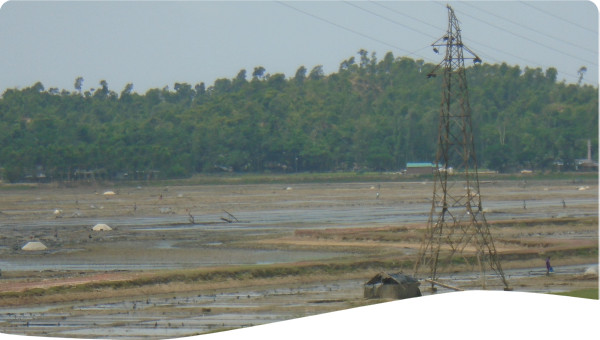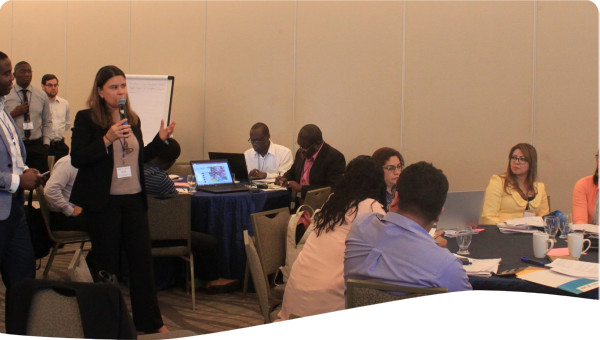Management of the Upper Vistula basin is guided through the project Continuation of the Implementation of the Water Framework Directive, which is a joint French-Polish initiative. This project provides avenues for exchange of practical experiences between Polish and French partners, mobilises different stakeholders within basin borders. The most important lesson learned is to remember that documents should be transparent and comprehensible.
The Water Framework Directive introduces new procedure requirements for the water management planning. Those elements are in the Polish context (as in other Member States), relatively new as they require:
- A multidisciplinary integration of the approach to the analysis and evaluation of the status of waters, of the identification of its reasons for the needs of the improvement of this status at the basis of activities in different social and economical sectors
- A detailed description of procedures adapted to the present administrative conditions, the availability of the input data and allowing a quick education of the personnel responsible for their implementation.
It requires many discussions, studies and pilot solutions that – properly disseminated – will bring effects in form of a proper realisation of the WFD’s requirements. The Polish-French Twinning Project “Continuation of the Implementation of the Water Framework Directive” – PHARE PL 2003/IB/EN/02 was realised by the Polish Ministry of the Environment and the French Ministry of Ecology and Sustainable Development and the International Office for Water. The Twinning Projects oriented at the transfer and exchanges of practical experiences directly between the Partners constitute an important support for this process. The commonly developed procedures have here a particular meaning and the method of their elaboration allows at the same time a quick education of the party that is the beneficiary.
This twinning has consisted in two years of co-operation between Polish and French experts who are daily facing with WFD implementation in their country, at national, regional or basin level. The work in common – consisting in the exchange of opinions and experiences – as well as the tests realised in practice have lead to the redaction of various thematic guidance documents developing recommendations and methodologies in order to implement efficiently WFD in Poland. The elaborated documents contain the results of tests carried out in pilot river basins; in the Upper Vistula river basin for the planning process and in the Narew river basin for the cost-recovery analysis. Once the tests in pilot basins achieved, draft versions of thematic guidance documents were presented and discussed in the frame of regional workshops, of the working groups’ meetings at also at the Technical Committee’s sessions.
In the presented planning process two planning stages can be distinguished quite clearly:
- Refining of the characterisation with the baseline scenario and risk assessment concluded by the identification of the main issues of the water management (realisation by the end of the year 2007)
- Process of the development of the programme of measures and of the water management plan (realisation by the end of the year 2009).
The present guidelines and recommendations cover this part of the planning process that directly serves the establishment of the programme of measures but at the same time “consumes” the previously elaborated typology of waters and the refined identification of important anthropogenic impacts on waters with the evaluation of their consequences. The following activities are described in form of guidelines recommendations:
- Elaboration of the refined baseline scenario
- Identification of artificial and heavily modified water bodies
- Refining of assessment of risk of failure to meet the environmental objectives
- Definition of the main issues of water management
- Elaboration of programme of measures through a step by step approach.
The guidelines and recommendations for the water management planning process accordingly to the requirements of the Water Framework Directive presented in the chapter 2 have been drafted in frame of the realisation of the Polish-French Twinning Project "Continuation of the Implementation of the Water Framework Directive 2000/60/EC". They have been developed at the basis of the realised tests and pilot activities that allowed gathering the practical experiences. The essential task of the present document is to create a basis for further works and discussions on the planning procedures that the Polish administration responsible for the water management planning should be realising during the nearest years. The following subjects have been identified within the elaboration of guidelines and recommendations in frame of the realisation of the Polish-French Twinning Project "Continuation of the Implementation of the Water Framework Directive 000/60/EC":
- Elements of co-operation between the institutions involved in the WFD implementation process
- Problematic of aggregation of the homogenous surface water bodies, and especially the reasons and principles of this aggregation.
The necessity of a direct co-operation between the institutions involved in the
WFD implementation process.
The most important lesson learned is to remember that documents should be transparent and comprehensible.
 Case studies
Case studies
